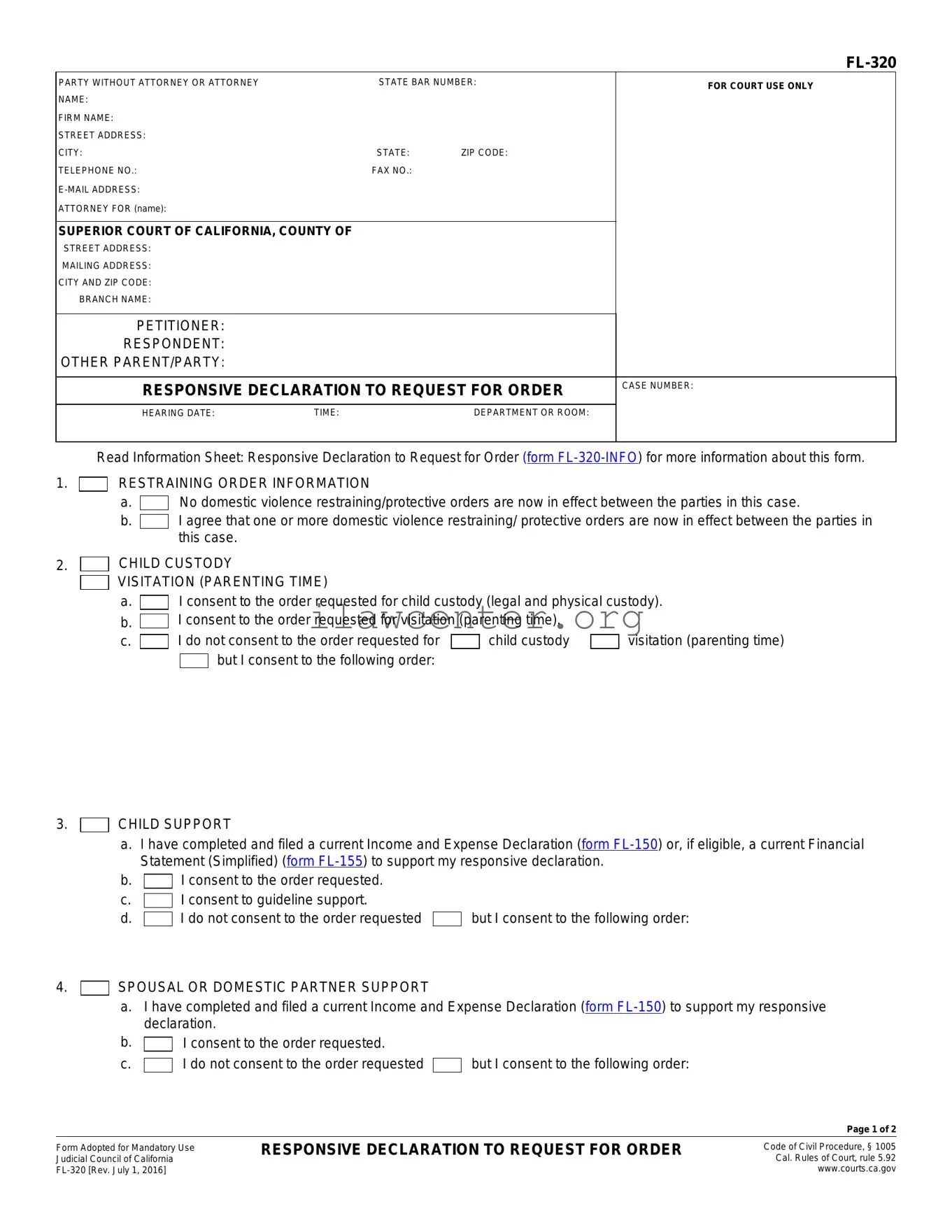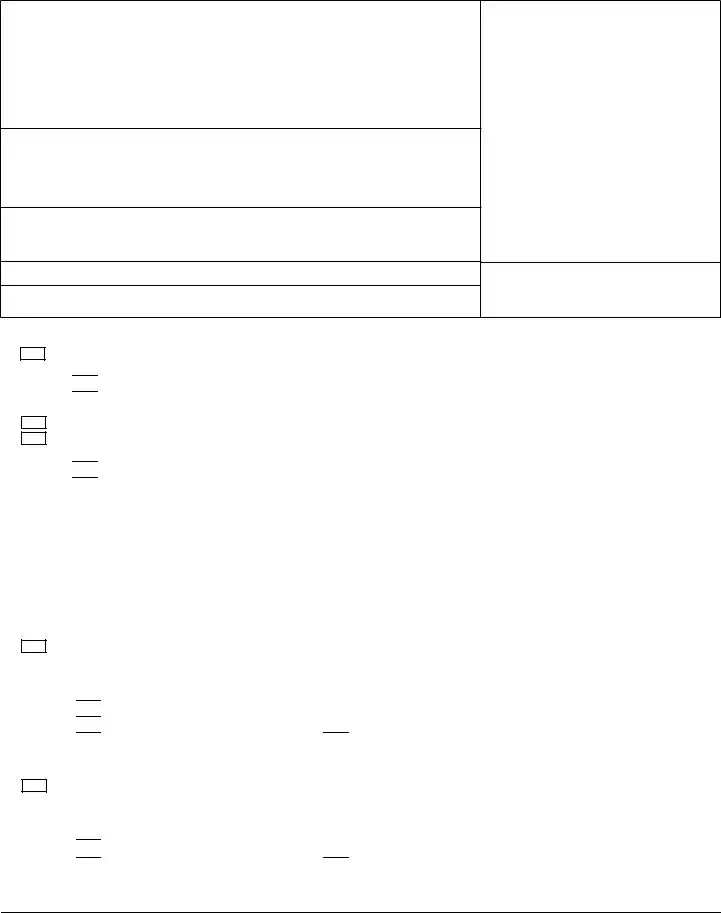Instructions on Utilizing Fl 320
Filling out the FL-320 form requires some attention to detail, as it’s crucial to accurately represent your position in the matter at hand. It is meant to respond to a request for an order, and ensuring everything is filled out correctly can help support your case in court. Here are the steps to guide you through the process of completing the form.
- Begin with the section at the top where you’ll need to provide your name, attorney information (if applicable), and contact details such as your address, phone number, and email.
- Next, enter the details of the Superior Court, including the county, street address, mailing address, and the case number.
- Identify yourself as the Petitioner or Respondent by filling in the appropriate section.
- Indicate whether there are any domestic violence restraining orders currently in effect. Circle either option a or b to show your agreement or disagreement with the statement regarding restraining orders.
- For child custody and visitation, select the appropriate responses that reflect your position. You may need to consent to the requested orders or propose alternative arrangements.
- Complete the child support section, noting whether you’ve filed an Income and Expense Declaration and how you respond to the requested child support order.
- In the spousal or domestic partner support section, indicate if you’ve filed the relevant financial declarations and your response to the requested orders.
- Address property control by stating your consent to the requested orders or suggesting alternatives as necessary.
- For attorney's fees and costs, confirm if you’ve completed the required documents to support your declaration, and agree to or dispute the fees requested.
- In the section for domestic violence orders, specify your consent or lack thereof to any requested orders.
- If there are any additional orders you wish to request, fill out that section with the necessary information.
- Complete the time for service and time until hearing section by indicating your agreements or disagreements with the requested terms.
- In the “Facts to Support” section, write out your supporting facts. Remember to keep this concise, as it cannot exceed ten pages without permission from the court.
- Finally, sign and date the form, declaring that the information you’ve provided is true and correct under penalty of perjury.
After completing the form, make sure to review it for any errors or missing information. Once you are confident everything is accurate, print the form and submit it to the court as instructed. It’s also advisable to keep a copy for your records.


 No domestic violence restraining/protective orders are now in effect between the parties in this case.
No domestic violence restraining/protective orders are now in effect between the parties in this case. I agree that one or more domestic violence restraining/ protective orders are now in effect between the parties in this case.
I agree that one or more domestic violence restraining/ protective orders are now in effect between the parties in this case. I consent to the order requested for child custody (legal and physical custody).
I consent to the order requested for child custody (legal and physical custody). I consent to the order requested for visitation (parenting time).
I consent to the order requested for visitation (parenting time). I consent to the order requested.
I consent to the order requested. I consent to guideline support.
I consent to guideline support.
 I do not consent to the order requested
I do not consent to the order requested 
 but I consent to the following order:
but I consent to the following order: I consent to the order requested.
I consent to the order requested.
 I do not consent to the order requested
I do not consent to the order requested 
 but I consent to the following order:
but I consent to the following order:
 I consent to the order requested.
I consent to the order requested. I consent to the order requested.
I consent to the order requested. I do not consent to the order requested
I do not consent to the order requested I consent to the order requested.
I consent to the order requested. I do not consent to the order requested
I do not consent to the order requested I consent to the order requested.
I consent to the order requested. I do not consent to the order requested
I do not consent to the order requested